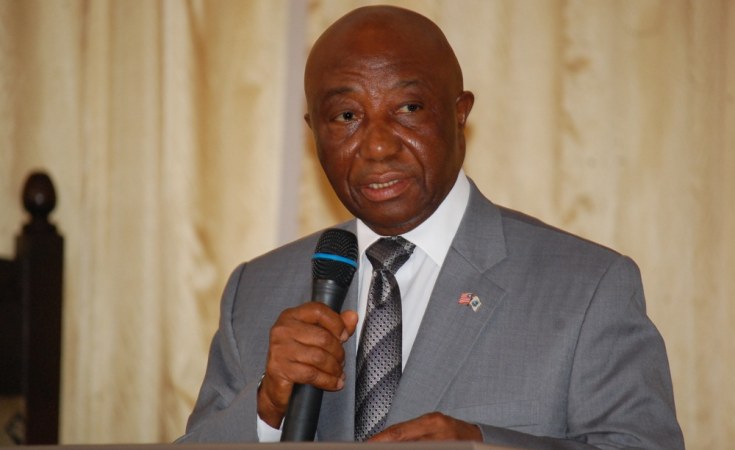Monrovia — The African Union held its 37th Ordinary Session of the Assembly of Heads of State and Government on February 17-18, 2024. The theme for that Session was: "Educate an African fit for the 21st Century: Building Resilient Education Systems for Increased Access to Inclusive, Lifelong, Quality, and Relevant Learning in Africa". This theme cleary falls in line with President Joseph Boakai's ARREST Agenda for his government. However, he was not present at this Summit.
The weekend before the 37th Session of the African Union Summit was convened, President Boakai made a discreet trip to Accra, Ghana under the guise of meeting with his Ghanaian counterpart. The meeting, FrontPageAfrica would later discover, did not take place as Nana Akufu Addo, the President of Ghana was leaving his country for the AU Summit as President Boakai was arriving in his country. Although the Executive Mansion later issued a press release disclosing that President Boakai met with officials of the Ghanaian government including the Vice President to discuss issues of bilateral interest, the release fell flat of producing any pictures or videos to prove that these meetings ever happened.
What even raised more eyebrows was the fact the President did not travel with his Press Secretary or any member of his cabinet. FrontPageAfrica was privy to information that the President traveled with his wife, two EPS agents, the government's pilot and a lady bearing a Sierra Leonean passport believed to be a relative of the President.
FrontPageAfrica inquired from the Presidential Press Secretary why the President did not atten the AU Summit, she responded, "He will attend the political summit".
The Minister of Foreign Affairs, Sara Beysolow Nyanti represented the President at that Summit.
Over the weekend, President Boakai again failed to attend the ECOWAS Summit where Presidents and heads of the government from the regional economic community agreed to lift sanctions on Niger, Burkina Faso and Mali. The Summit was held at EOCWAS headquarters in Abuja, Nigeria.
The Liberian President who failed to attend the Summit, however, supported the lifting of economic sanctions on these countries through a statement presented on his behalf by the Liberian Ambassador to Nigeria, and the Permanent Representative to ECOWAS, Dr. Al-Hassan Conteh.
Pres. Boakai stated in his message: "I wish to extend you, Mr. Chairperson and all Excellencies Heads of State and Government my heartfelt appreciation for your steadfast leadership in ably running the affairs of our enviable regional body, ECOWAS. Let me extend my apologies for being unable to join you at this important Summit due to prior unavoidable national engagements at this time."
It is not clear which unavoidable national engagement constrained the President not to attend the ECOWAS Summit.
Critics say President Boakai's absence from the ECOWAS Summit, along with his failure to attend the African Union Summit, represents a missed opportunity of significant magnitude. As a newly inaugurated president within the region and on the African continent, establishing and nurturing relationships with fellow heads of state is paramount for President Boakai as these summits serve as platforms for leaders to forge alliances, cultivate diplomatic ties, and garner support for their national agendas.
Moreover, according to critics, the Summit was especially important to Liberia being that it bordered on regional security and stability, as Liberia is quite vulnerable to terror attack.
In his briefing notes, former Chief of the Armed Forces of Liberia, Maj. Gen. Prince C. Johnson, III, informed President Boakai of the volatility of the West African Region when it comes to terrorism and that Liberia could be a possible target for terrorist for a number of reasons. The briefing notes, seen by FrontPageAfrica indicated that it is the intent of terrorists to expand their activities towards coastal countries in the sub-region evidenced by their attack in neighboring Ivory Coast.
"Liberia could be a target of terrorist attacks. Factors that might influence these are unemployment, illegal mining, militancy, and money laundering. Furthermore, Liberia's porous borders provide security gaps that could be exploited by terrorist organizations. Therefore, there is a need for security institutions to deploy strategically to deter terrorist activities and also to enhance security cooperation and intelligence sharing with sisterly countries. There is also a need to enhance the Intelligence Surveillance and Reconnaissance (ISR) capabilities of security institutions," the briefing notes stated.


